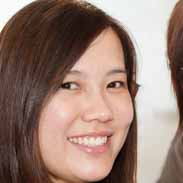Teaching-Early Childhood Education Flashcards, test questions and answers
Discover flashcards, test exam answers, and assignments to help you learn more about Teaching-Early Childhood Education and other subjects. Don’t miss the chance to use them for more effective college education. Use our database of questions and answers on Teaching-Early Childhood Education and get quick solutions for your test.
What is Teaching-Early Childhood Education?
Early Childhood Education is a field of study that focuses on the development and educational needs of children from birth until 8 years old. This field strives to provide the best educational practices for young children, ensuring that each child receives a strong foundation on which to build their education. Teaching in early childhood education can be an extremely rewarding career choice for those with a passion for helping young minds develop and grow.Teachers in this field must be patient, creative, and flexible as they work with students at different stages of development. Teachers need to understand how children learn best, as well as being knowledgeable about child development theory and practice. They should also have strong communication skills, both verbal and non-verbal, so they can effectively interact with their students. Additionally, teachers need to be able to differentiate instruction based on the various learning styles and abilities of the students in their classroom. Lastly, teachers should possess an understanding of how their teaching strategies can help create an environment that is conducive to learning and success for all students. The primary goal of early childhood education is to help young children learn basic skills such as reading, writing, counting and problem solving while also fostering social-emotional growth through play-based activities. A well-rounded early childhood curriculum emphasizes physical development through gross motor activities such as running or jumping; social/emotional development through activities that foster cooperation; cognitive development through language experiences such as storytelling; creative expression through art projects; logical thinking through manipulative play; problem solving through puzzles or block building; science exploration; music appreciation; dramatic play experiences; and other age appropriate activities designed to spark curiosity in young learners. Teaching early childhood education requires educators who are passionate about creating dynamic learning environments where everyone feels valued regardless of race, gender identity or ability level something critical given the importance of creating equitable learning opportunities for every student from day one. It also requires educators who are willing to get creative when it comes time for instruction incorporating technology whenever possible into lessons will keep things fresh while bringing relevance into the classroom experience. Aspiring teachers must remember that working at this level isn’t just about teaching but it’s also about nurturing a love of learning something they should take pride in.




















